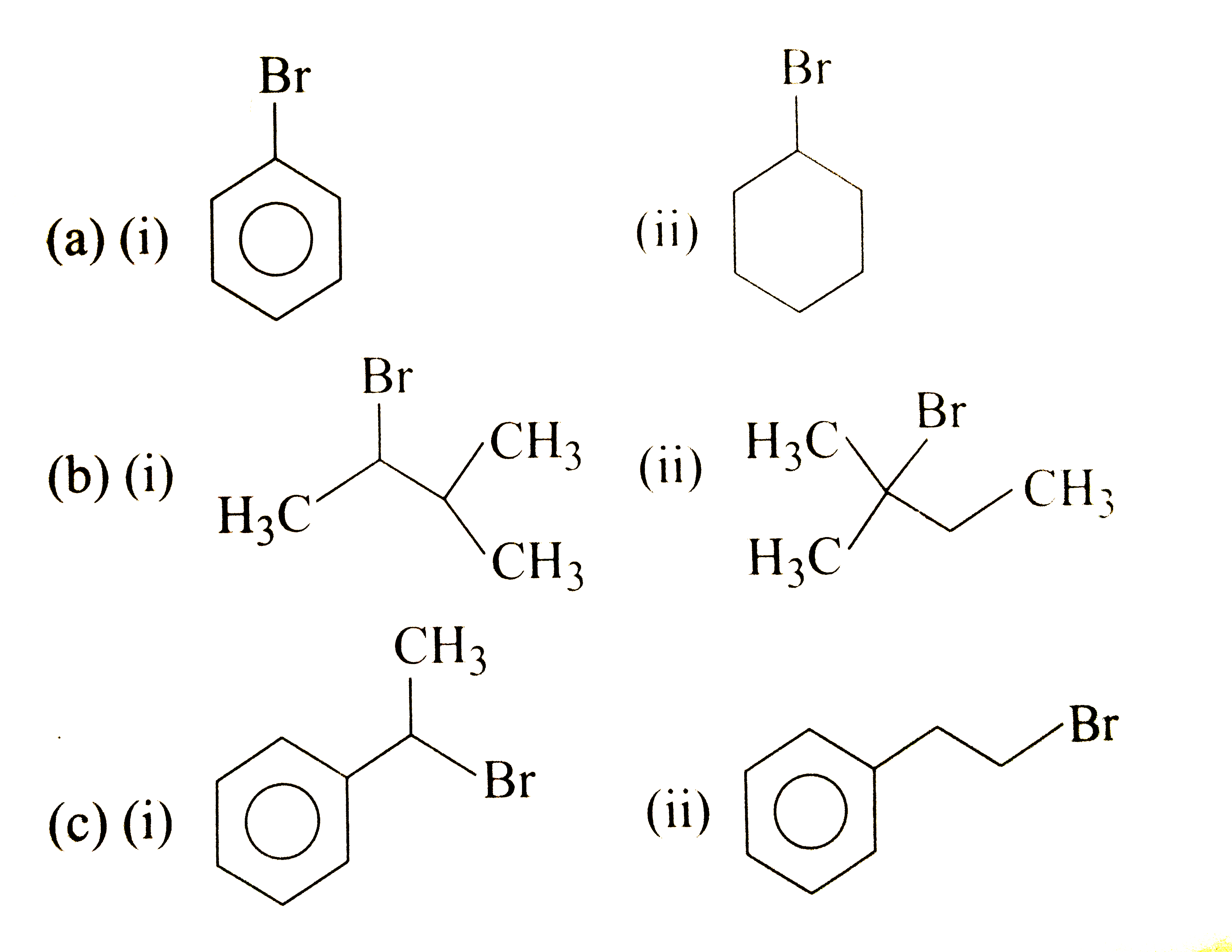Explain why CH3Cl undergoes hydrolysis at a faster rate in the presence of Nal.
Text Solution
The hydrolysis of methyl chloride in aquous medium takes place at a much slower rate because H2O is a weak nucleophile (because it is a neutral nucleophile and the attacking oxygen atom is highly electronegative and less polarisable) and ClΘ is not a very good leaving group (becuase it is not a very weak base and the C-Cl bond is not very weak).

The iodide ion (IΘ) catalyses the hydrolysis of CH3Cl. Due to high polarisability and low solvation energy, IΘ is a good nucleophile. Again, for its weak basicity and low bond energy of the C-I bond IΘ can act as an effective catalyst in substitution reactions. In the presence of NaI, the hydrolysis of CH3Cl takes place by the following two steps-

Each of these two reactions [(2) and (3)] takes place at a faster rate than the reaction (1) because IΘ is a better nucleophile than H2O and it is a better leaving group than ClΘ . As a result, the overall hydrolysis occurs at a faster rate in the presence of Nal. it is a case of nucleophilic catalysis.
|
Topper's Solved these Questions
- HALOAKANES AND HALOARENESBOOK - CHHAYA PUBLICATIONCHAPTER - HALOAKANES AND HALOARENESEXERCISE - Warm up exercise
120 Videos
- HALOAKANES AND HALOARENESBOOK - CHHAYA PUBLICATIONCHAPTER - HALOAKANES AND HALOARENESEXERCISE - Solved WBCHSE Scanner (2014)
3 Videos
- HALOAKANES AND HALOARENESBOOK - CHHAYA PUBLICATIONCHAPTER - HALOAKANES AND HALOARENESEXERCISE - Solved NCERT Textbook Problems
139 Videos
- GENERAL PRINCIPLES AND PROCESSES OF ISOLATION OF ELEMENTSBOOK - CHHAYA PUBLICATIONCHAPTER - GENERAL PRINCIPLES AND PROCESSES OF ISOLATION OF ELEMENTSEXERCISE - PRACTICE SET 6
10 Videos
- HYDROCARBONSBOOK - CHHAYA PUBLICATIONCHAPTER - HYDROCARBONSEXERCISE - PRACTICE SET 13
16 Videos
Similar Questions
Knowledge Check
When CH3Cl undergoes homolytic bond-fission
Acarbon undergoes a geometric changed from tetrahedral to planarBhybridisation changed from sp3tosp2CBoth of these takes placeDNone of the aboveCH3CH2Cl undergoes homolytic fission, produces
ACH3⋅CH2 and ⋅ClBCH3⊕CH2 and ClΘCCH3⊕CH2 and ⋅ClDCH3⋅CH2 and ClΘCH3CH2Cl undergoes homolytic fission to produce
ACH3CH2and.ClBCH3+CH2andCl−CCH3+CH2and.ClDCH3.CH2andCl−
The hydrolysis of methly bromide takes place much faster in the presence of Nal. Why?
View SolutionExplain why in pair, (CH3)3CCl and CH3Cl,CH3Cl will react faster in SN2 reactions with OH−.
View SolutionCH3CH2Cl undergoes homolytic fission, produces
View SolutionCH3CH2Cl undergoes homolytic fission produces:
View SolutionWhen CH3Cl undergoes alkaline hydrolysis to produce CH3OH, the state of hybridization of C atom in the transition state is
View Solution


